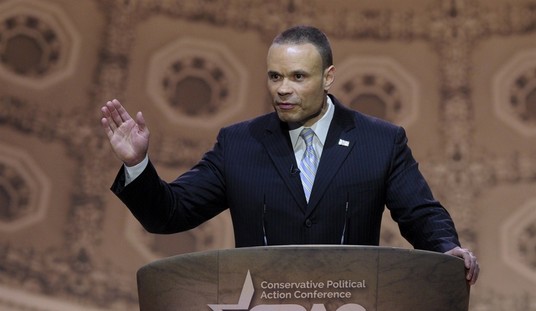In America, humans are for sale.
Slavery is alive and well in the form of human trafficking and prostitution. We have exchanged the auction block for the street corner, open bidding for quiet transactions.
Harriet Jacobs, a black slave in the 1800s, wrote about her master’s unwanted sexual advances, remembering: “He told me I was his property; that I must be subject to his will in all things.” Far from being ancient history, this horror is echoed today in a world where millions of people have been abandoned to the sex trades in all its ugly facets.
Often referred to as “modern-day slavery,” human trafficking has attracted widespread attention. John Kerry’s remarks at the release of the 2014 Trafficking in Persons Report referenced the commonly accepted definition that “sex trafficking [is when] a commercial sex act is induced by force, fraud, or coercion, or [when] the person induced to perform such an act has not attained 18 years of age…”
No reasonable person would deny that victims of human trafficking for sexual abuse are true victims.
They are often beaten or tortured by their pimps or johns—the men who pay to use them. They are regularly raped. They are vulnerable to STDs, depression, drug or alcohol abuse, post-traumatic stress disorder, and so much more. They are forced or manipulated from an early age to give up their personal autonomy and to view themselves through the eyes of their oppressor.
“He told me that he was a pimp and I was his property,” Asia Graves, a victim of human trafficking, stated in a testimony before a U.S. Senate Committee. These abuses are clearly a form of slavery.
However, the clarity of what constitutes enslavement is lost when it comes to the oppression of prostitution.
Recommended
The majority of prostitutes experience similar, if not identical, hardships to trafficking victims. According to a study that reviewed prostitutes in San Francisco, 82 percent of prostitutes had been physically assaulted in prostitution, 68 percent had been raped, 84 percent had been or were currently homeless, and 68 percent met criteria for a diagnosis of Post-Traumatic Stress Disorder. Someone engaged in prostitution is vulnerable to disease, and psychological harm, and often distorted concepts of self-worth which causes them to continue acting in violation of their inherent human dignity and value.
But when Shelia Simpkins reflects on her experiences as a former prostitute and says “I was [my pimp’s] property,” our culture doesn’t choose to hear it.
The primary distinction between human trafficking and prostitution, some argue, is the component of choice. This prevalent view is ignorant of prostitution’s reality.
The majority of prostitutes enter the commercial sex industry between ages 12 and 14. Underage prostitution is by definition sex trafficking. But what happens to these children on their eighteenth birthday?
Suddenly, they are transformed from a victim in need of our help, to a criminal who’s worthy of our scorn and condemnation. It is easy to forget that the vast majority of prostitutes come from lives characterized by abuse. A 2003 article reviewed literature on prostitution, and noted that sixty to ninety percent of prostitutes had been sexually abused as children.
The years of manipulation that bond young people to their pimps are too often ignored. Most people understand and pity the twisted psychological reasoning of some battered wives, clinging to their husbands through years of abuse. This same mindset must be applied in helping those trapped in prostitution, abused beyond their ability to think clearly.
Even disregarding the fact that most prostitutes began as underage trafficking victims, prostitution is not a profession of choice. A survivor of prostitution, Nekome, wrote an essay to share her experience:
“I had a two-year old baby to feed, no home, no car and I was presented with the choice to make money or not eat… I had an eighth grade education and a learning disability. At the time I could barely fill out a job application and I had been refused work at McDonald’s…”
The “choice” to become a prostitute, except for an extremely small minority, is almost always forced by economic circumstances and predispositions from past abuse. According to a study by the Coalition Against Trafficking in women: “Ninety four percent [of surveyed U.S. prostitutes] said they could not recommend prostitution to other women… Many spoke about prostitution as a final option.” In fact, a study by Melissa Farley revealed that 95% of prostitutes who were surveyed said they wanted to leave, but couldn’t.
Alleged exceptions exist. Occasionally we see a headline about the Ivy League college girl trying to make a statement by selling her body to pay tuition. But those who engage in limited prostitution, not relying on it for survival, cannot be seen as representatives of the vast majority of prostitutes who don’t have the luxury of an easy out.
Even the very few “high class” prostitutes who are reserved for the elite do not excuse prostitution any more than the relatively superior treatment of the house slave compared to the field slave excuses slavery. Just because some slaves have better meals or clothes does not mean they are free.
It is important to re-define sex trafficking to include most cases of prostitution so victims of prostitution can be regularly offered support and counseling, and to remove the arbitrary distinction between domestic sex trafficking and prostitution which aids pimps in avoiding prosecution.
Every day in America men, women, and children, are purchased to be used at the pleasure of their temporary masters. These oppressive sexual markets don’t need to be regulated they need to be removed.
Complete abolition is the only cure for slavery.
























Join the conversation as a VIP Member